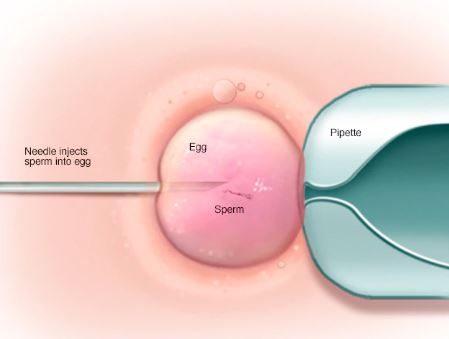egg freezing in the UK is becoming quite common, purely based on the results and most talked about advancements in the field of reproductive biology these days. For people who are getting married and planning to settle down, the thought of having a child is always welcomed with the feelings of happiness and joy. Whereas some couples have delayed plans of starting their own families, the reasons can be many –personal or professional. Dr Goral Gandhi, Scientific Director Indo Nippon IVF Mumbai, says that infertility is a stressful thing for young generation these days. For them, Egg freezing or other types of fertility preservation methods will help them reduce the overall pressure. The infertility specialist having more than a decade experience explains a few terms related to Egg freezing:

1. Ovarian Reserve
Ovarian reserve is a term used to describe the volume of the female reproductive organ i.e. the ovaries. With increasing age the fertility of a woman tends to go down which means the quality and quantity of eggs production goes down. These are the reasons for a “diminished ovarian reserve”. So basically ovarian reserve is the capacity of the ovaries to produce eggs that are capable of fertilizing which will further result into a successful pregnancy.
2. Infertility
Infertility is a state where a couple is unable to get pregnant after continuously trying for more than year without using a contraceptive method. Infertility can be because of any one of the partners, either female or male. It is not restricted to either of the sexes. Being diagnosed with infertility does not imply that you cannot conceive normally with so many advancement in science and technology there are ways to have a baby even after being infertile. Normally one in eight women experience infertility, for women who are 35 years and above that count goes to one in three.
3. Follicle
Ovarian follicles are small sacs filled with fluid. They are present inside the ovaries and are responsible for secreting various hormones like estrogen- responsible for ovulation and progesterone- which prepares the body for a pregnancy. Each follicle has the potential to release one egg for fertilization. The follicles get bigger in size and rupture at ovulation, resulting in the releasing the egg. The number of ovarian follicles a woman has decreases with the increasing age and the eggs quality also goes down subsequently.
4. Stimulation
Stimulation in reproductive biology has been termed as the process of giving hormonal medications to ovaries so as to retrieve maximum number of eggs from them. More eggs production increases the chances of conception of any one of the eggs, following implantation.
5. Oocyte Cryopreservation
Cryo-presrvation is term used for cooling and storing cells at a relatively very low temperature so as to preserve their survival rate and quality. Preserving them means that there will be no activity and also activity leading to cell death and or DNA degradation. Oocyte cryopreservation is the technical term for egg freezing. At Indo Nippon IVF we do cryopreservation
6. Vitrification
Vitrification is a cryopreservation or a flash freezing technique that cools extremely quickly to a glass like solidification and the frozen cells become vitrified. This process is very important for egg freezing as the eggs are mostly water. Studies have demonstrated that vitrification is superior to any other method of egg freezing, including slow freezing. At Indo-Nippon IVF, we use Cryotech Vitrification, which is proving to be one of the most efficient and cutting edge method for egg freezing.
7. Thawing
Thawing is a process in which the frozen egg is put in a controlled environment before letting it go for fertilization. Thawing is done after freezing, where it is brought back to its normal state with normal metabolic activities which were suspended while being frozen. We at Indo Nippon IVF give a 100% survival rate ,its magic but science, says Dr Goral Gandhi– Scientific director Indo Nippon IVF Mumbai, India.
These were some of the terms related to Egg freezing explained by the infertility specialist and also the scientific director of Indo Nippon IVF Mumbai, Dr. Goral Gandhi, Mumbai. For more IVF news and her latest blogs visit www.indonipponivf.com
